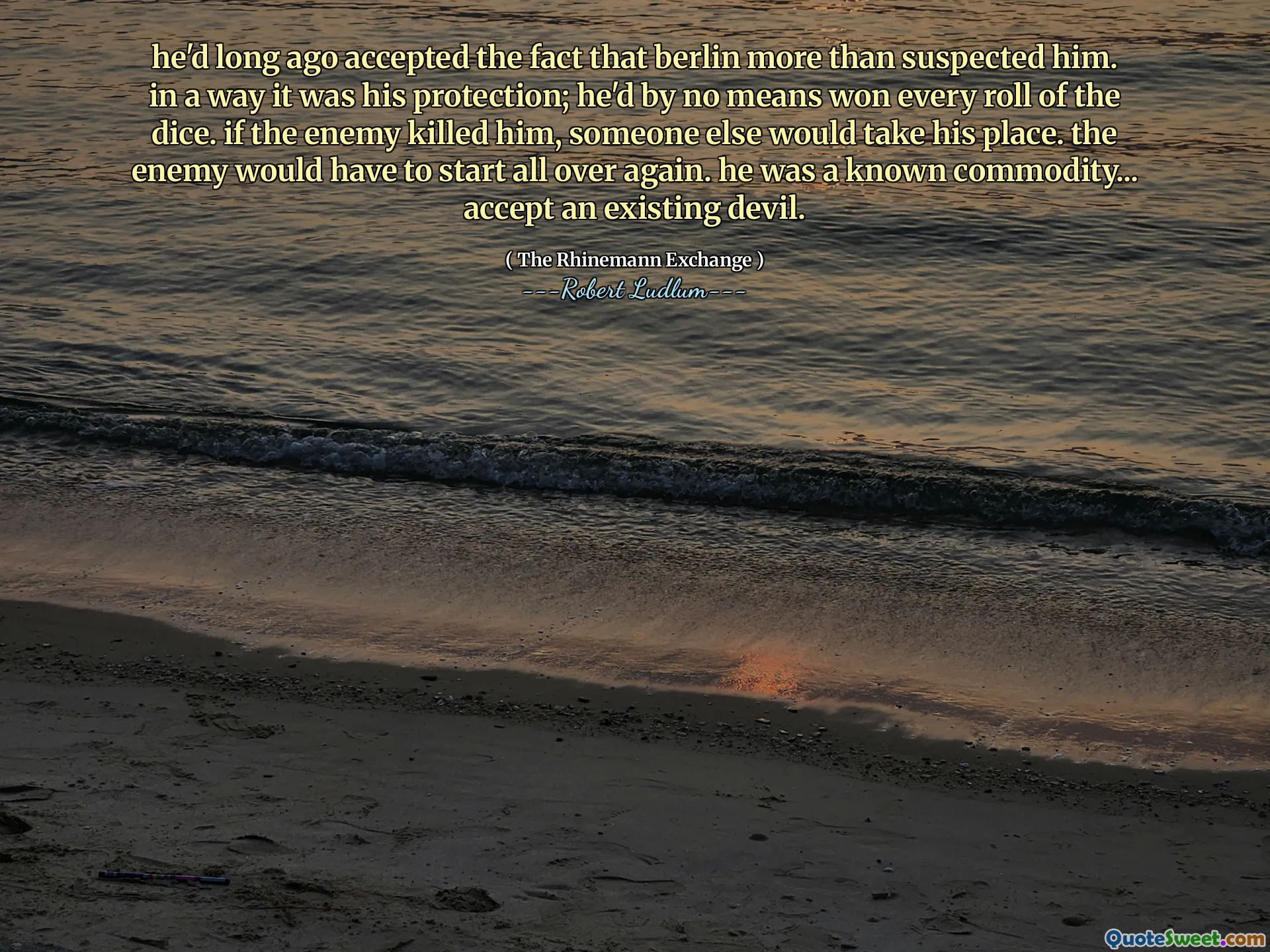
he'd long ago accepted the fact that berlin more than suspected him. in a way it was his protection; he'd by no means won every roll of the dice. if the enemy killed him, someone else would take his place. the enemy would have to start all over again. he was a known commodity... accept an existing devil.
The protagonist in "The Rhinemann Exchange" comes to terms with the fact that Berlin has a significant awareness of his actions. He sees this acknowledgment not as a weakness but as a means of protection that gives him a strategic advantage. While he has faced setbacks and challenges, his established reputation means that he would not be easily replaced if he were to be eliminated.
This idea of being a "known commodity" speaks to the complexities of espionage, where familiarity breeds a certain level of security. The enemy's need to start over in tracking and understanding a new individual provides him with a rare form of leverage, reinforcing the notion that sometimes, embracing a precarious situation can be beneficial in the high-stakes game of intelligence.






